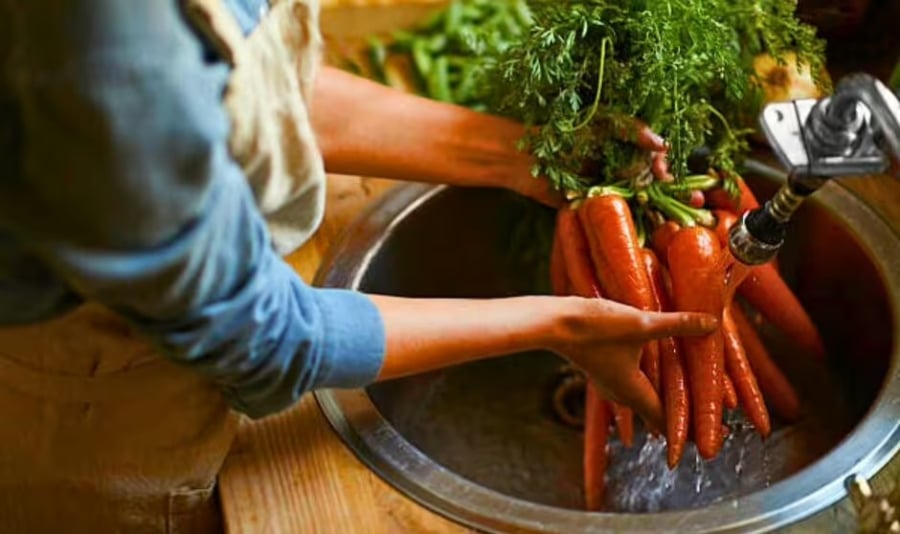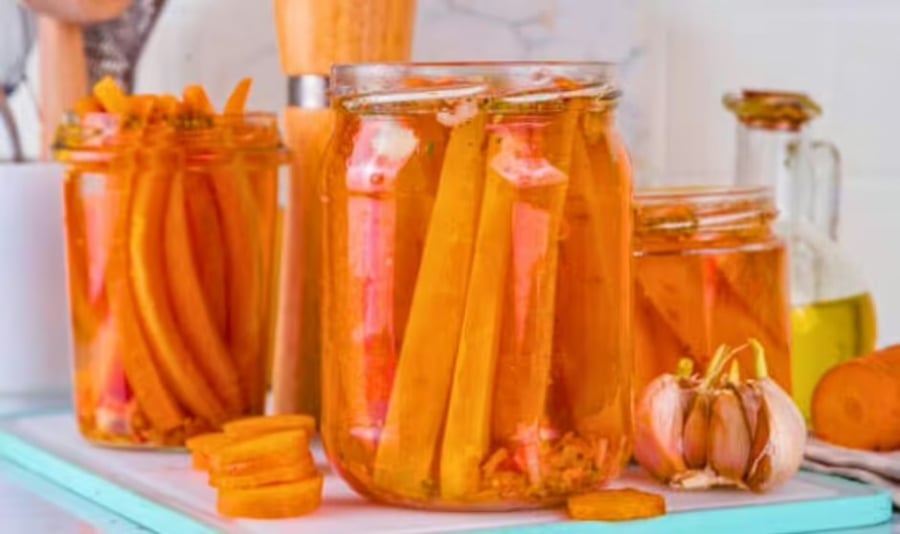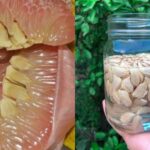Carrots have a high water content, and if not stored properly, the moisture in these vegetables can attract bacteria, mold, and fungal spores, leading to spoilage.
Amy Cross, an expert and the founder of The Cross Legacy, shared with Express.co.uk a simple 10-minute method to keep carrots fresh for up to four weeks.
“My guide to keeping carrots fresh in the fridge for up to a month involves using whole carrots. I recommend keeping them whole so they last longer, ensuring you always have crisp, tasty carrots at hand,” Amy advised.

According to Amy, the best way to store carrots and prevent spoilage is to wash them with white vinegar and then store them in an airtight container in the fridge.
Distilled vinegar contains acetic acid, which has natural antibacterial properties. Washing the carrots in this solution will kill the bacteria that typically cause spoilage. If bacteria grow on the carrot’s surface, mold will break down the cell walls, causing the carrots to become soft, mushy, and rotten within a few days.
The right way to store carrots to extend their shelf life
All you need to do is fill a large bowl with cool water and add about 60ml of white vinegar.
Set a timer for two minutes before placing the carrots in the bowl, and make sure not to soak them for longer than a few minutes, or they may absorb the vinegar flavor.
“Make sure you set a timer for two minutes—that’s all the time needed for the soak. After two minutes, remove the carrots and rinse them off. Pay attention to how dirty the water is!” Amy said.
After soaking the carrots, rinse them with clean water and place them on a tea towel or paper towel to dry.

Let the carrots air dry, but ensure they are completely dry before placing them in the fridge, as excess moisture can lead to mold.
Once the carrots are dry, cut them into smaller pieces and store them in a glass container or jar, then simply place them in the fridge to stay fresh for another four weeks.
Carrots can dehydrate quickly when exposed to air in the fridge, so storing them in an airtight glass container will prevent air and mold from entering the jar, keeping the carrots from spoiling.
“When you follow these steps, your fresh carrots will stay crisp and tasty for up to a month! Plus, your carrots will be ready to slice, shred, or snack on for the whole family,” Amy said.
The benefits of carrots
– Improve eye health
Carrots are rich in beta-carotene, which converts to vitamin A in the body. Vitamin A is essential for eye health, improving vision and preventing eye problems such as age-related macular degeneration and night blindness.
– Boost immune system
Vitamin A and C in carrots play a crucial role in supporting the immune system, helping the body fight off infections and diseases. Carrots also contain antioxidants that protect the body from the damaging effects of free radicals.
– Promote digestive health
Carrots are a good source of fiber, which improves digestive function, prevents constipation, and promotes a healthy gut.
– Reduce the risk of cardiovascular disease
The antioxidants in carrots, such as beta-carotene, alpha-carotene, and lutein, can help protect the heart, reducing the risk of heart-related issues. The fiber in carrots also helps lower bad cholesterol (LDL), contributing to cardiovascular health.
– Aid in weight loss
Carrots are low in calories but high in fiber, making you feel fuller for longer and helping control hunger, which is beneficial for weight loss.
– Enhance skin appearance
Beta-carotene in carrots protects the skin from sun damage and prevents premature aging. Vitamin C in carrots also boosts collagen production, keeping the skin firm and healthy.
Improve oral health: Chewing raw carrots has a natural teeth-cleaning effect, removing plaque and stimulating the gums. Carrots also increase saliva production, which helps prevent cavities and protect tooth enamel.





































